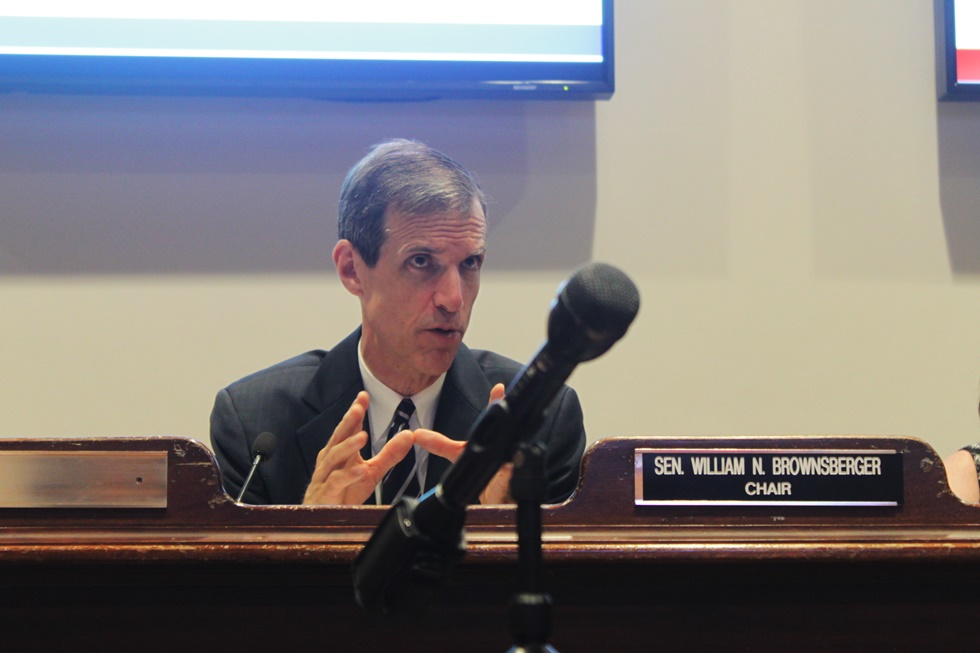
THE SENATE IS poised to consider a wide-ranging criminal justice bill that would reform everything from the bail system to mandatory minimum sentences and fees and penalties that weigh heavily on low-income defendants.
The bill aims not only to reduce incarceration rates, but to eliminate various ways people get tripped up by a system that sometimes seems designed for them to fail, said Sen. William Brownsberger, the measure’s lead sponsor. “It’s about lifting people up, not locking people up,” he said of the bill. “And it’s about reducing entanglements with the criminal justice system.”
Legislative leaders and Gov. Charlie Baker have all lined up behind separate legislation that emerged in February from a year-long review of criminal justice policy. That measure, which is now forming the basis for a House bill, is aimed more narrowly at reducing recidivism by increasing some programming in prisons and allowing more inmates to earn “good time” credits that shave time off their sentences.
Two-thirds of those leaving county houses of correction and more than half of those leaving the state prison system are arraigned on new criminal charges within three years, according to the Council of State Governments, which coordinated the policy review.
Brownsberger’s bill would go much further, enhancing the ability of courts to divert more cases from the criminal justice system to community programs so that younger offenders don’t enter the system. It also would repeal mandatory minimum drug sentences that are not tied to drug quantities, such as a law mandating minimum sentences for drug offenders arrested near a school. It would also eliminate the fees charged to indigent defendants for legal representation and eliminate the suspension of a defendant’s driver’s license for missing a court date.
Whether the widely divergent bills will lead to conflict between the two branches or serve as starting points for far-reaching compromise is one of big questions facing Beacon Hill this fall.
